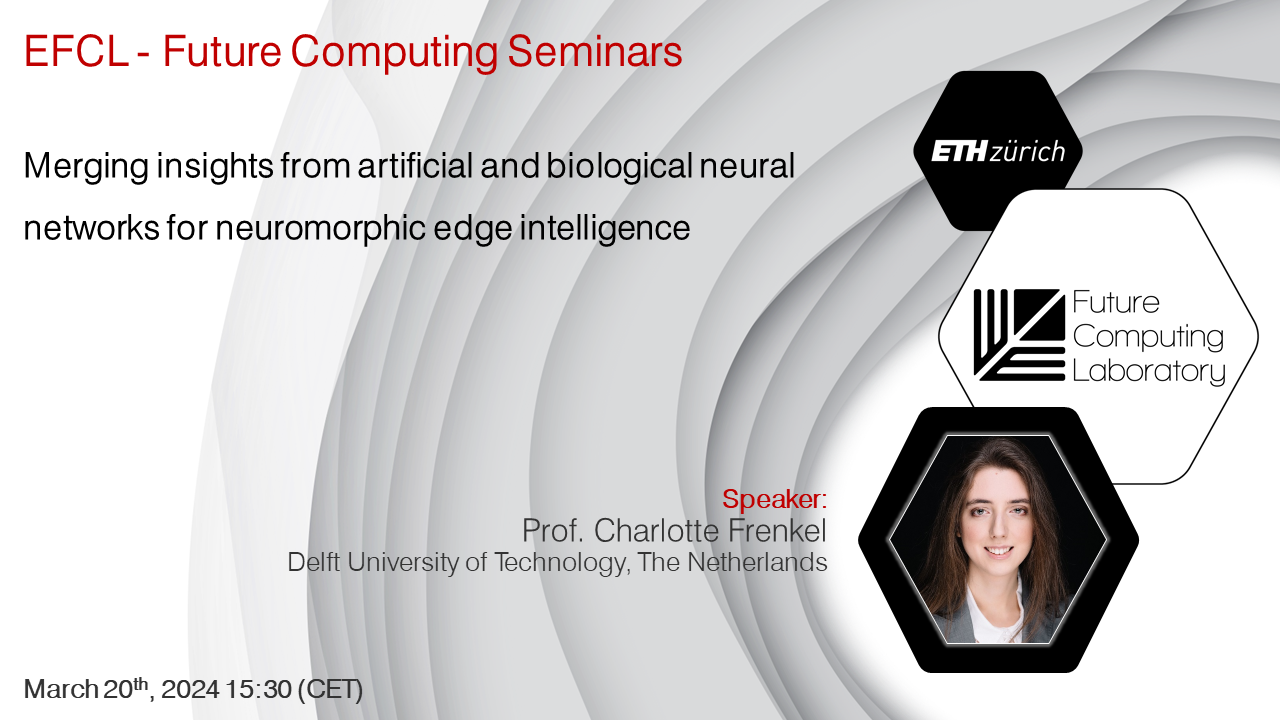Merging insights from artificial and biological neural networks for neuromorphic edge intelligence

Join us for our upcoming Future Computing Seminar Series
Speaker: external page Prof. Charlotte Frenkel, Delft University of Technology
Date: Wednesday, March 20th, 2024, 15:30 CET
Where: Online
Abstract:
The development of efficient bio-inspired training algorithms and adaptive hardware is currently missing a clear framework. Should we start from the brain computational primitives and figure out how to apply them to real-world problems (bottom-up approach), or should we build on working AI solutions and fine-tune them to increase their biological plausibility (top-down approach)? In this talk, we will see why biological plausibility and hardware efficiency are often two sides of the same coin, and how neuroscience- and AI-driven insights can cross-feed each other toward low-cost on-device training.
Speaker Bio:
Charlotte Frenkel is an Assistant Professor at Delft University of Technology, The Netherlands. She received her Ph.D. from Université catholique de Louvain in 2020 and was a post-doctoral researcher at the Institute of Neuroinformatics, UZH, and ETH Zürich, Switzerland. Her research aims at bridging the bottom-up (bio-inspired) and top-down (engineering-driven) design approaches toward neuromorphic intelligence, with a focus on digital neuromorphic processor design, embedded machine learning, and brain-inspired on-device learning. Dr. Frenkel received a best paper award at the IEEE International Symposium on Circuits and Systems (ISCAS) 2020 conference, and her Ph.D. thesis was awarded the FNRS / Nokia Bell Scientific Award 2021 and the FNRS / IBM Innovation Award 2021. In 2023, she was awarded prestigious AiNed Fellowship and Veni grants from the Dutch Research Council (NWO). She serves as the chair of the tinyML initiative on neuromorphic engineering, as a program co-chair of the NICE conference and of the tinyML Research Symposium, as a TPC member of IEEE ESSERC, and as an associate editor for the IEEE Transactions on Biomedical Circuits and Systems.